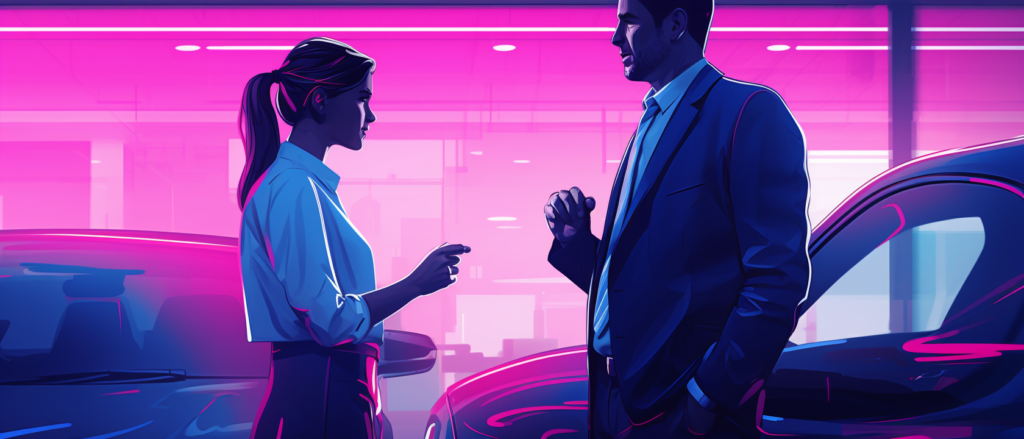The words “drowsiness” and “fatigue” are usually used interchangeably, but they differ significantly.
While fatigue can refer to a feeling of tiredness or exhaustion due to illness or physical activity, drowsiness refers specifically to the state right before sleep.
For ease of understanding, we sometimes use these words interchangeably to describe sleepiness or difficulty staying awake during crucial moments. However, there is a difference between the two terms and they shouldn’t be confused. We take a closer look at the distinction…

What is fatigue?
Fatigue is generally normal when it follows duress or physical exertion. Think how you feel when you get home from the gym: you have worked your muscles and your heart rate for a decent amount of time and now you feel quite lethargic.
Doing a task for many hours without a rest may cause you to feel fatigued, but not necessarily drowsy and fatigue gets progressively worse with the duration and intensity of the task.
Often however, when companies talk about fatigue management, they are really talking about prevention of drowsiness because that is the dangerous state before sleep.
Feeling lethargic may not make the most productive workers, but it does not mean they are not alert to their surrounds and the risks inherent with their work. A drowsy worker however is potentially a hazard to themselves and others within their surrounds because they are at risk of performance failure.
This distinction is therefore important so individuals and group policies protect their workers from harm, not just lethargy or exhaustion from exercise or exertion.
What is drowsiness?
When you are drowsy, you require sleep. In fact, as you likely know, you cannot fight sleep forever, nor can you force yourself to stay awake when your body is ready to sleep.
Drowsiness can interfere with normal day-to-day activities affecting your concentration, reaction time, productivity and most seriously, your safety.
Drowsiness differs from fatigue in that when we use “drowsiness”, we are referring to the precise moment right before sleep onset occurs. This period is dangerous as we have no control over it. The intermittent lack of awareness characterising drowsiness is not caused by fatigue.
Consequently, drowsiness is much more dangerous than fatigue from a safety perspective.
Fatigue is relieved by rest and inactivity, but the same rest and inactivity will make drowsiness worse.
We work with companies every day to help manage this issue which is especially risky for 24-hour operations. There are a number of strategies to follow for people who work when their body wants to sleep and we have some great tips for power naps because it’s important to note that you cannot put off sleep forever.
By the time you have reached the state of drowsiness, your body is already fighting sleep. Sleep onset is not far off and it’s likely you will not remember the exact moment you nodded off to sleep.
When you are drowsy, you need sleep
We’ve all been there:
- Dozing on the couch only to wake up what feels like hours later, even if we only nodded off for minutes
- Lying in bed with the TV on, and waking up to find you just missed the ending of that TV episode
The examples above provide no real risk; the worst that can happen is you have to force yourself up and into bed. But drowsiness can strike even when you are not expecting it. That includes in the workplace, on the road and in other situations where your safety and the safety of others is in jeopardy.
Causes of drowsiness and fatigue
Medication
You’re probably familiar with a variety of medications that list fatigue and or drowsiness as a side effect.
Medications inducing fatigue may include:
- Cancer treatments – including chemotherapy and radiation
- Blood pressure treatments
- Diuretics
Medications inducing drowsiness may include:
- Cold and cough treatments
- Anti-depressants
- Painkillers
- Sleeping pills
- Antihistamines
Sleeping habits
Poor sleep habits and shift work can wreak havoc on the quality and quantity of sleep you receive.
When you suffer a poor night’s sleep, sleep debt instantly begins to accumulate. There is no other payment that will clear that debt than sleep and that means you are at risk of entering the state of drowsiness.
Are you a shift worker? Your job can have a real negative effect on your health and sleep. It is a company’s obligation to protect its staff by effectively managing shift work. This may include:
- Optimum roster planning
- Health assessments
- Minimum rest periods
Find out more about shift work disorder here.
Underlying and undiagnosed sleep conditions
If feelings of extreme fatigue and or drowsiness are persistent and affecting your personal and professional life, you may be suffering from an undiagnosed sleep or medical condition and you should see a doctor to investigate further.
Sleep conditions that can be diagnosed by a doctor include:
- Sleep apnea
- Insomnia
- Narcolepsy
- Restless leg syndrome
- Chronic fatigue syndrome
Illness
Many common illnesses – ranging from mild to severe – can also leave you feeling fatigued or drowsy. These illnesses include:
- Depression
- Flu
- Arthritis
- Diabetes
Poor diet
An unhealthy diet can result in fatigue as your body struggles without the nutrients it requires. Too much sugar gives only a temporary high; you’ll quickly come crashing down and you might feel sluggish for the rest of the day. Dehydration can lead to a “foggy brain” feeling where concentration is affected and you lack energy.
Measuring drowsiness or wakefulness
Importantly Optalert’s patented technology can measure both states. We have products to monitor employees in the workplace and on their way to and from work; we have products suitable to monitor patients involved in clinical trials to determine the effects of pharmaceutical drugs either intentionally-induced or as a side effect of the drugs taken; and we license technology to automotive manufacturing companies who want to solve the problem of drowsy drivers.
Contact us to find out more about Optalert’s drowsiness / wakefulness monitoring technology. Look here for more information.

